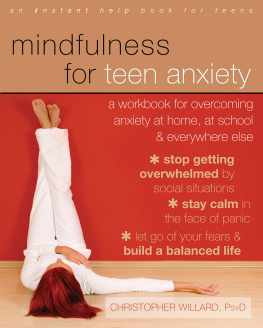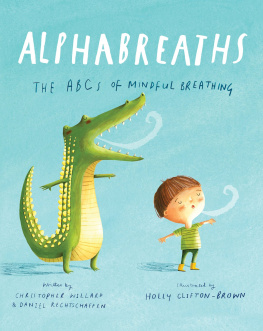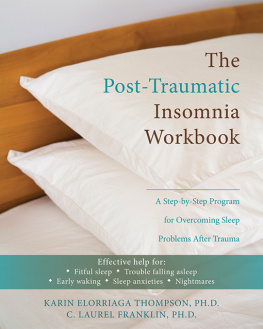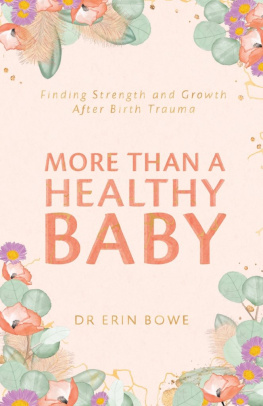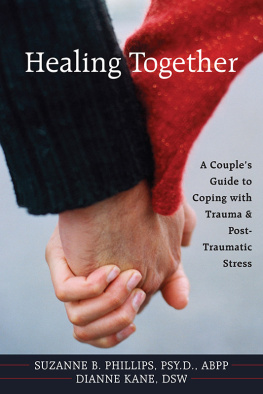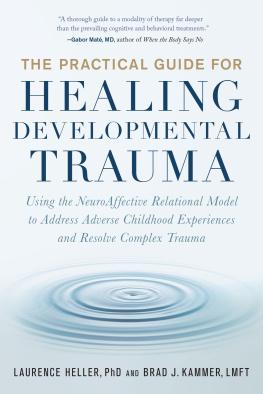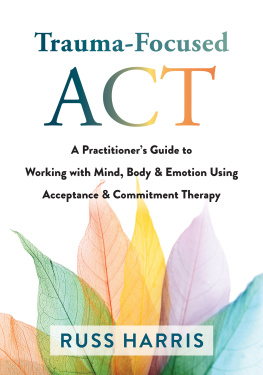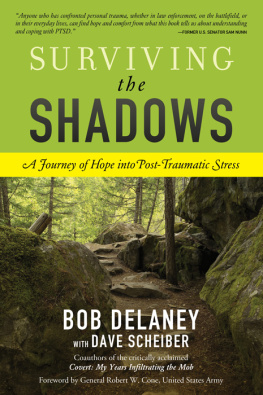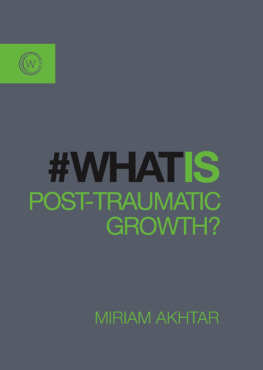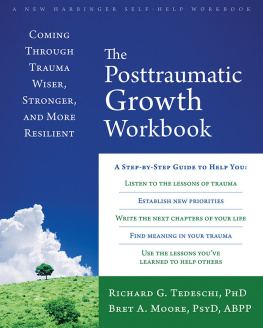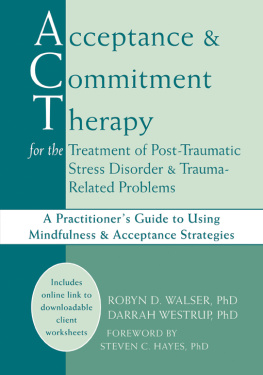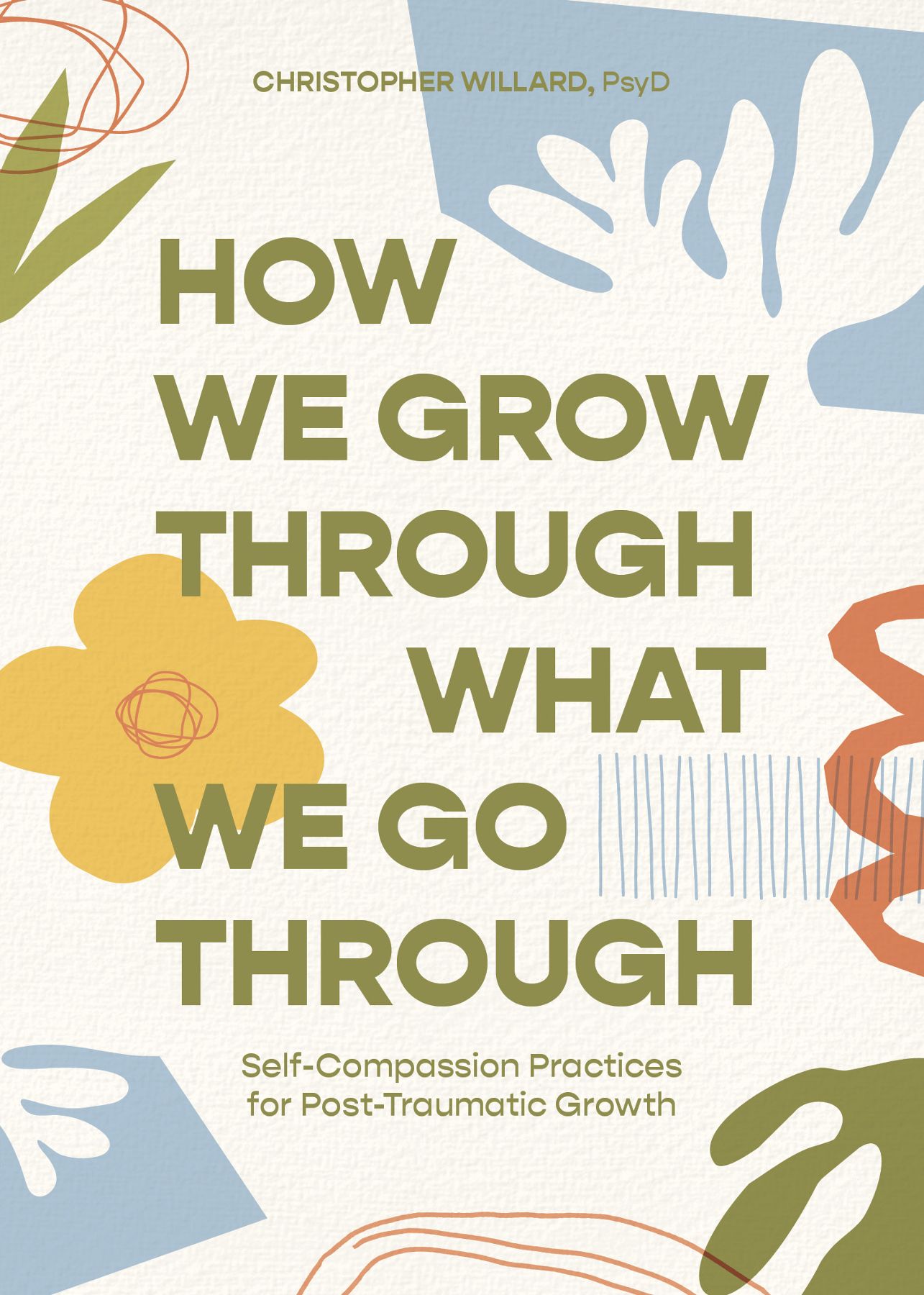
Praise for How We Grow Through What We Go Through
Chris Willards latest book offers a straightforward yet science-based guide to recovery and healing, from the individual to the collective.
Emma Seppl , Yale psychologist and author of The Happiness Track
Dr. Willard has written an accessible book that gives beautiful context to the complexities of what happens inside of our bodies and in our relationships with one another when we undergo the experience of rupture and trauma, both individually and collectively. He lays out a compassionate road map for how we might find growth and the reemergence of possibility through it all. During a time when people are desperately looking for a way to understand their own relationship to mental, emotional, and physical pain and how it is impacted by our intersectional identities so as to be empowered to heal themselves and the planet, this book will prove to be a very helpful guide and resource to help us restore our capacity to treat ourselves and one another with loving-awareness.
Dr. Sar King , neuroscientist, medical anthropologist, education philosopher, and founder of MindHeart Consulting
A beacon in this era of our collective trauma that lights a way back into our bodies to reclaim our growth.
Patrick Teahan, LICSW
Dr. Willards Attend and Befriend approach to recovering from stress and trauma unfailingly normalizes the readers distress and skillfully encourages the recovery of innate capacities to experience enough safety inside ones self to feel safe again in the world. What sets this book apart is the unpretentious way Dr. Willard walks with the reader step-by-step through the science and a workable sequence of practices that empower the reader to both heal through post-traumatic stress and heal into post-traumatic growth.
I especially appreciate the authors sensitivity to the realities of marginalized groups and the empathic sharing of so many stories of real people who show us that we, too, can learn to act our way into new feelings, new thoughts, new possibilities for our lives.
Linda Graham, MFT , author of Resilience: Powerful Practices for Bouncing Back from Disappointment, Difficulty, and Even Disaster
With love and rigor, Chris Willard has offered us an invaluable road map to working skillfully with trauma. The writing is thoughtful, the practices are accessible, and the message is exactly what we need: that we can survive (and even thrive) when faced with traumatic stress. Highly recommended!
David Treleaven, PhD , author of Trauma-Sensitive Mindfulness: Practices for Safe and Transformative Healing
As we emerge from this global pandemicinto still more instability and trauma, we are beginning to understand the impact it has had on all of our bodies, hearts and minds. Collective healing is possible when we remember how deeply our lives are intertwined and that we belong to each other.
Leslie Booker , co-author of Best Practices for Yoga in a Criminal Justice Setting
Dr. Chris Willard provides a profound and restorative guide to the nonlinear journey that is healing from trauma. He offers nuanced language for understanding the impact of trauma on the nervous system and what it means to befriend, reset, and reregulate while honoring the many intersections and layers of our lived experience. Dr. Willard wrote this book in a way that is accessible, affirming, academic, and empowering while also making you feel like you are sitting with a friend over coffee and reflecting on your resilience. A one-of-a-kind resource that honors and centers the humanity of all those who have experienced trauma. A must-read for mental health and healing professionals inspired to integrate an understanding of neuroscience, mindfulness, self-compassion, and embodiment into their work with clients.
Zahabiyah Yamasaki, MEd, RYT , author of Trauma-Informed Yoga for Survivors of Sexual Assault and forthcoming childrens book Your Joy is Beautiful
How We Grow Through What We Go Through
How We Grow Through What We Go Through
Self-Compassion Practices for Post-Traumatic Growth
Christopher Willard, PsyD

Sounds True
Boulder, CO 80306
2022 Christopher Willard
Sounds True is a trademark of Sounds True, Inc.
All rights reserved. No part of this book may be used or reproduced in any manner without written permission from the author(s) and publisher.
Published 2022
Cover design by Mia Cupidro
Book design by Meredith Jarrett
Illustrations on by Juliet Percival
BK006364
Names: Willard, Christopher (Psychologist), author.
Title: How we grow through what we go through : self-compassion practices for post-traumatic growth / by Christopher Willard, PsyD.
Description: Boulder, CO : Sounds True, 2022. | Includes bibliographical references.
Identifiers: LCCN 2022013159 (print) | LCCN 2022013160 (ebook) | ISBN 9781683648901 (trade paperback) | ISBN 9781683648918 (ebook)
Subjects: LCSH: Self-actualization (Psychology) | Mindfulness (Psychology) | Resilience (Personality trait) | Mind and body.
Classification: LCC BF637.S4 W4944 2022 (print) | LCC BF637.S4 (ebook) | DDC 158.1--dc23/eng/20220715
LC record available at https://lccn.loc.gov/2022013159
LC ebook record available at https://lccn.loc.gov/2022013160
Contents
T his book emerged in the midst of the first year of the COVID-19 pandemic, while forests and cities burned, as climate change accelerated, and as a critical and historic presidential election loomed on the horizon. Such times of personal and global upheaval unsettle and even rewire our individual and collective nervous systems, often in ways that are deeply traumatic. And yet, its not like the rest of life stopped happening in 2020. Close friends lost jobs. My sons best friend moved across the country. My mom got diagnosed with a rare, degenerative dementia called Lewy body dementia, a heartbreaking spiral into physical paralysis and memory loss. She died weeks after vaccines became available. Life and death and their ten thousand joys and sorrows continued apace, only there was a pandemic to contend with, too.
Friday the thirteenth of March, 2020, was the day that everything shut down where my family lives. Passengers on my flight home from Chicago had been wearing masks and gloves, and suddenly our kids school was canceled for the next two weeks. (Remember when pandemic closures were going to be for only two weeks?) The entire globe seemed to skid into a sudden stop.
My wife and I sat on the back porch, looking into our postage stamp-sized yard as the kids trampled through the lingering snow. We actually had a moment to chat as we sipped our coffee and the kids entertained themselves for once.
The kids are never going to forget this time, I uttered, trying to sound profound. My wifea medical historian whose job is literally to study the ways that plagues and pandemics alter the course of historyglanced over at me, one eye still on the kids. No one is going to forget this time, she said. Historians will talk about the coronavirus pandemic of 2020 [and then the delta variant of 2021 and the omicron variant of 2022] in a thousand years.
I sat and pondered this as the kids began creating an imaginary ice cream shop with the muddy snow. How do I want them to remember this time? I wondered. How do I want them to remember me in this time? How do I want to feel when I remember this time?
Next page

